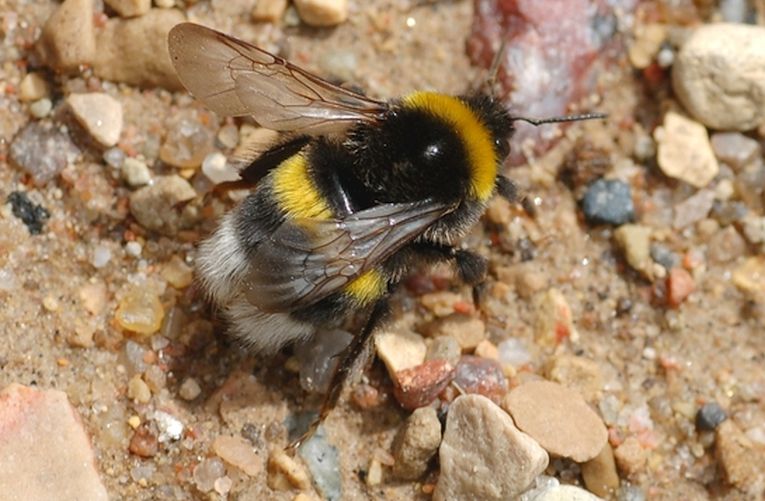Recently scientists have been studying the mass occurrence of dead bees, which they believe is caused by colony collapse disorder. In other words, their navigation is shot, preventing them from being able to return to their hive. The ongoing research suggests that the problem can be heavily linked to human causes. Factors such as climate change and pesticides are some examples of how humans are intervening with the natural process of pollination that the bees need to survive. This is one account, last year of the EU’s ban on neonicotinoids in To bee or not to bee.
Although bees are feared for their ability to sting, they are actually essential to the life of many plants. Bees are the main pollinators of many plants, so without them, many fruits and vegetables we take for granted will begin to disappear, or at least start costing more. Without natural pollination, farmers will have to invest in manual pollination techniques. This would increase the price of their produce, causing an economic impact in the grand scheme of things.Your plants you could miss that require pollination include apples, oranges cucumbers, bananas, tomatoes, vanilla, beans, cotton lemons, coffee, onions and broccoli.
A company working to develop a product that works to help the bees stated in their research notes that: “In order to produce a pound of honey, over 750 bees must log over 55,000 miles of flying. During this extensive flight programme, visiting over 2 million flowers to collect nectar, the insects also pollinate the plants that make I out of every 3 bites of food we eat.”
Hady Ghassabian, an Italian designer, invented a product called, “the bee saver.” The bee saver is a simple keychain with a nectar container. The product works by providing nectar when someone sees an exhausted honey bee or bumble bee struggling. They can offer it the nectar to help reenergise the bee so that it can continue working for its hive and for us. The bee saver has not yet been officially launched, but the company is preparing a campaign to help spread awareness of mass deaths of bees and promote their product.
So the next time you hear that familiar buzzing sound around your ear, maybe you won’t freak out and start waving your hands to kill the animal. Maybe you will fully appreciate the little bee and let her get on with her busy bee day!










